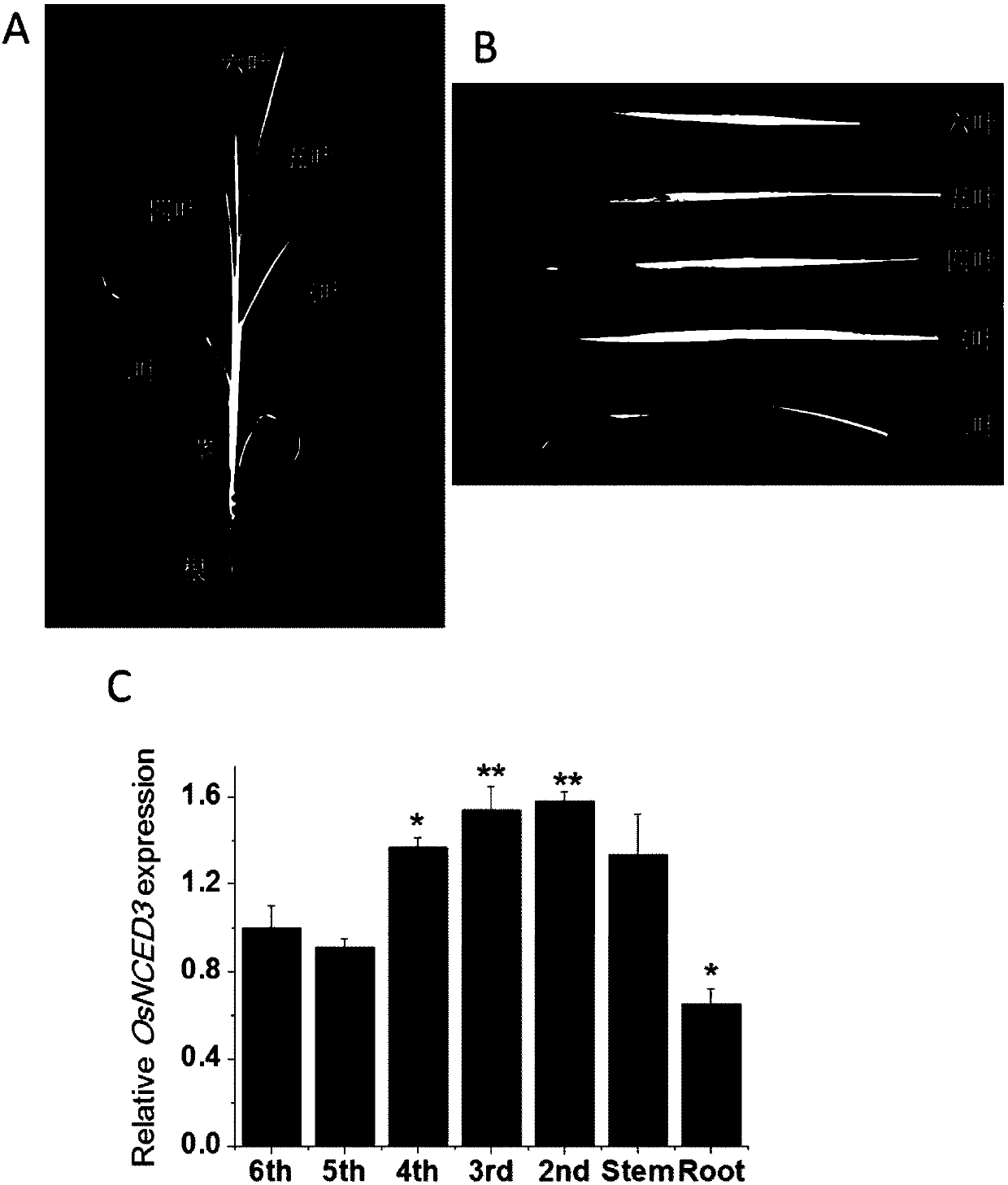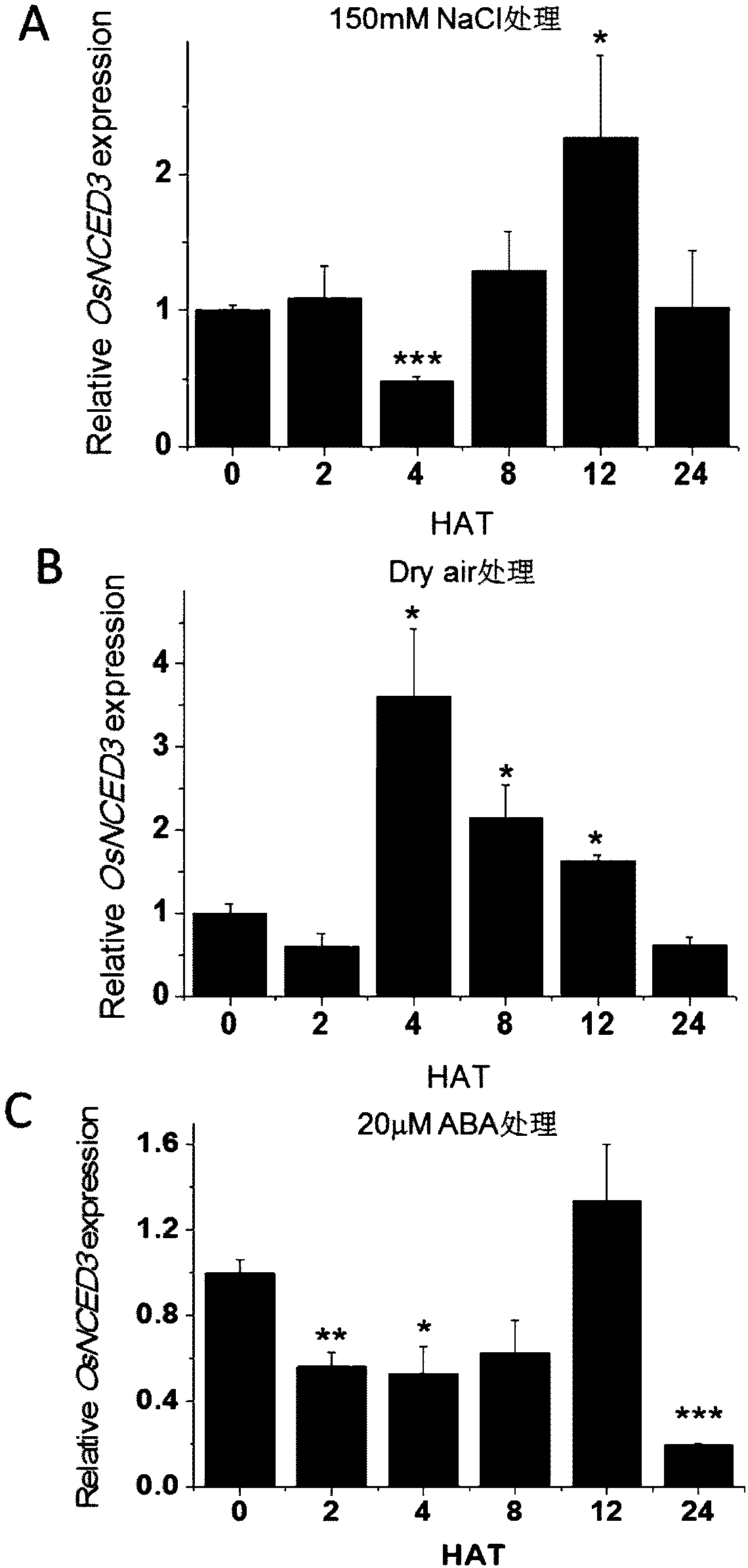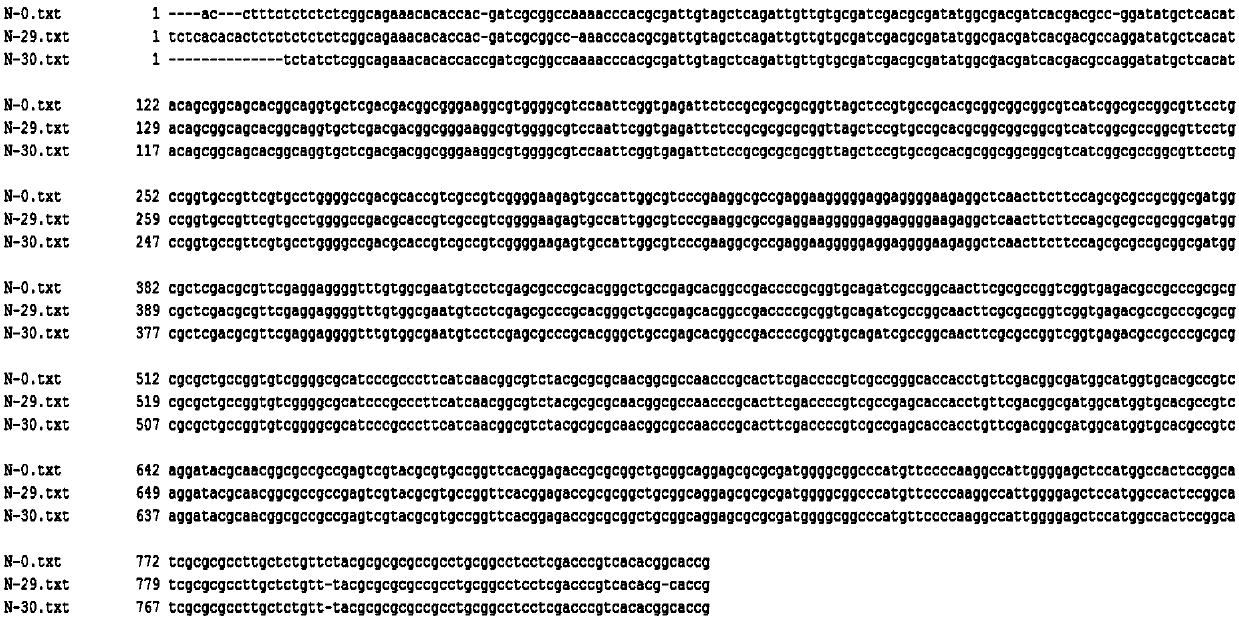Coding sequence and application of epoxy carotene dioxygenase OsNCED3 gene of rice
A rice and gene technology, applied in the field of genetic engineering, can solve the problem of unclear mechanism of leaf senescence
- Summary
- Abstract
- Description
- Claims
- Application Information
AI Technical Summary
Problems solved by technology
Method used
Image
Examples
Embodiment 1
[0043] Embodiment 1, rice gene OsNCED3 clone
[0044] 1. The rice variety Zhonghua11 was cultured in an incubator (SPX-250-GB, Shanghai, China): the growth conditions were photoperiod 16h / 8h (L / D), 28°C;
[0045] 2. RNA extraction. Take about 100 mg of fresh rice plant tissue material and fully grind it with liquid nitrogen. Add 1 ml Trizol reagent, vortex for 15 s, and place at room temperature for 5 min. Add 0.2 ml chloroform, remove protein, centrifuge at 12000rpm for 10min, transfer the supernatant to a new centrifuge tube, add an equal volume of isopropanol, mix thoroughly, place at room temperature for 10min, centrifuge at 12k rpm for 10min, discard the supernatant, and treat with DEPC Wash the precipitate with 1 ml of 75% ethanol prepared in water, and repeat once. Dry at room temperature for 5-10 min, dissolve in 20 µl DEPC water, measure OD value, and detect by electrophoresis;
[0046] 3. Cloning of genes. by corresponding Arabidopsis AtNCED3 Bioinformatics ...
Embodiment 2
[0047] Example 2, Rice OsNCED3 Gene organ expression pattern analysis
[0048] Rice stems, roots, two leaves, three leaves, four leaves, five leaves, six leaves ( figure 1 , A, B) total RNA, the total RNA was reverse-transcribed into cDNA using a reverse transcription kit, and real-time fluorescent quantitative PCR was detected using primers SEQ ID NO.5 and SEQ ID NO.6 ( figure 1 , C). The results showed that the gene was expressed constitutively, with the highest expression level in the second leaf and the least expression level in the root; there was no significant difference in the expression level among the stem, fifth leaf, and sixth leaf.
Embodiment 3
[0049] Embodiment 3, rice gene OsNCED3 Expression pattern analysis under drought, high-salt stress and plant hormone treatment
[0050] Two-week-old rice seedlings were treated with 150mM NaCl, drought and 20µM ABA for 24h, and the total RNA in the leaves after 0, 2, 4, 8, 12, and 24h were extracted, and the total RNA was extracted using a reverse transcription kit. Reverse transcribed into cDNA, using primers SEQ ID NO.5 and SEQ ID NO.6, for real-time fluorescent quantitative PCR detection. The results showed that the expression level was significantly increased after NaCl treatment for 12h ( figure 2 , A), the expression level increased significantly at 4h under drought ( figure 2 , B), the expression level decreased significantly after 20 μM ABA treatment for 24 h ( figure 2 , C).
PUM
| Property | Measurement | Unit |
|---|---|---|
| molecular weight | aaaaa | aaaaa |
Abstract
Description
Claims
Application Information
 Login to View More
Login to View More - R&D
- Intellectual Property
- Life Sciences
- Materials
- Tech Scout
- Unparalleled Data Quality
- Higher Quality Content
- 60% Fewer Hallucinations
Browse by: Latest US Patents, China's latest patents, Technical Efficacy Thesaurus, Application Domain, Technology Topic, Popular Technical Reports.
© 2025 PatSnap. All rights reserved.Legal|Privacy policy|Modern Slavery Act Transparency Statement|Sitemap|About US| Contact US: help@patsnap.com



